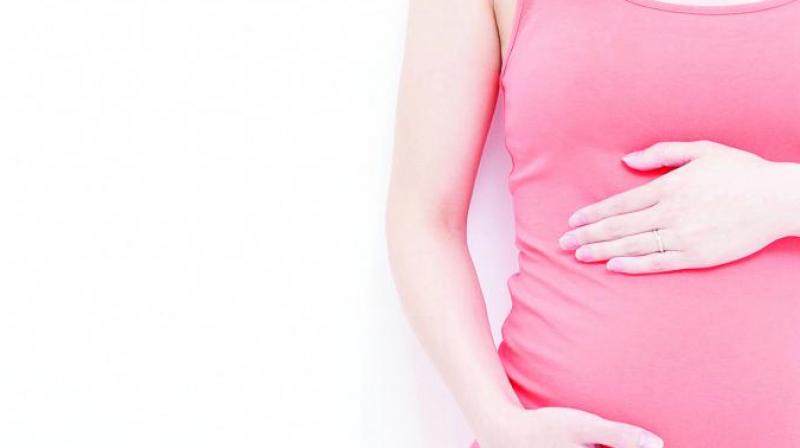High on hormones
The thyroid diseases are relatively common in pregnancy and equally important to be treated.

Pregnancy is a time for a lot of hormonal changes in a woman’s body. The thyroid hormones that help to generate energy, regulate body temperature and also assist other organs to function affects more than 15 per cent of pregnant women in India. Since there is an increased demand on the thyroid gland to produce hormones during pregnancy, in some cases it is found to be overactive or underactive. Both these conditions are not suitable for a pregnant woman as it leads to high blood pressure and also affects the foetus’ growth and development. That’s why thyroid testing is carried out in pregnancy to ensure that there are enough hormones to support body functioning of the mother and the child in the womb, explains senior endocrinologist Dr Shyam Kalavalapalli.
Q What is the incidence of pregnant women suffering from thyroid in India? Is it on a rise? If so, why?
There is a high prevalence of hypothyroidism in India and it ranges from 10 to 15 per cent from region to region. This incidence is definitely on the rise. Though the reason still remains unclear, partly it is due to routine availability and affordability of tests and more due to changing thyroid immunology of the society that may be attributed to changing lifestyles.
Q Which age-group of pregnant women are found to suffer from thyroid?
Thyroid problems typically happen between the ages of 20 and 40 years. Hence, though not compulsory, it would be better for all women in that age bracket and seeking pregnancy to have a consultation at the preconception clinic to ensure their thyroid levels are normal.
Q What are the tell-tale signs that suggest thyroid in pregnant women? Is it detected in the first trimester or in later stages?
Symptoms vary depending on whether there is too much or too little thyroid hormone present in the blood. If these changes are borderline, there may even be no symptoms.
With an excess of it (hyperthyroidism), patients complain of feeling restless, anxious, hot and sweaty. They may have tremors, trouble concentrating, weight loss and diarrhea. If thyroid hormone levels are low (hypothyroidism), these mothers experience fatigue, lethargy and weight gain. Many patients report feeling excessively cold as well.
Q What is the reason for hypothyroidism and hyperthyroidism in pregnant women?
Pregnancy leads to a lot of changes in the mother’s body — physical, emotional, hormonal, immunological etc.
Hypothyroidism during pregnancy is the autoimmune disorder known as Hashimoto’s thyroiditis. In this condition, the body mistakenly attacks the thyroid gland cells, leaving the thyroid incapable of making adequate thyroid hormone.
Untreated maternal hypothyroidism poses a risk for both mother and child. Uncontrolled hypothyroidism in pregnant women can lead to high blood pressure, anemia and weakness. There is also an increased risk of miscarriage, premature birth or even stillbirth.
Hyperthyroidism during pregnancy is the autoimmune disorder called the Grave’s disease. In autoimmune disorders, the body makes an antibody called thyroid-stimulating immunoglobulin that causes the thyroid to make too much thyroid hormone. Antibodies are proteins produced by the body at the time of a virus or bacterial infection.
Q Does thyroid become normal after birth of the child?
After delivery, most hypothyroid women need to decrease the thyroxine dose they received during pregnancy. For those with subclinical hypothyroidism (borderline hypothyroidism), the treatment can be discontinued in selected cases.
However, Graves disease, the most common reason for hyperthyroidism, can flare up or relapse after delivery and would need treatment.
What is thyroid gland?
Thyroid gland is located in the neck region and produces thyroid hormones thyroxine (T4), triodothyronine (T3).
Postpartum Thyroiditis
Another entity is postpartum thyroiditis, it is an inflammation of the thyroid gland which occurs within a year after a woman gives birth. It affects 10 per cent of mothers and usually has two phases, hyperthyroidism and hypothyroidism. The first phase (hyperthyroidism), usually doesn’t need treatment because symptoms are mild and brief, however, in the second phase (hypothyroidism), one will need thyroxine. After six to 12 months, the treatment could be stopped briefly to see if thyroid has become normal on its own which is seen in most cases, but some women develop long-term hypothyroidism and need lifelong thyroid hormone replacement therapy.

